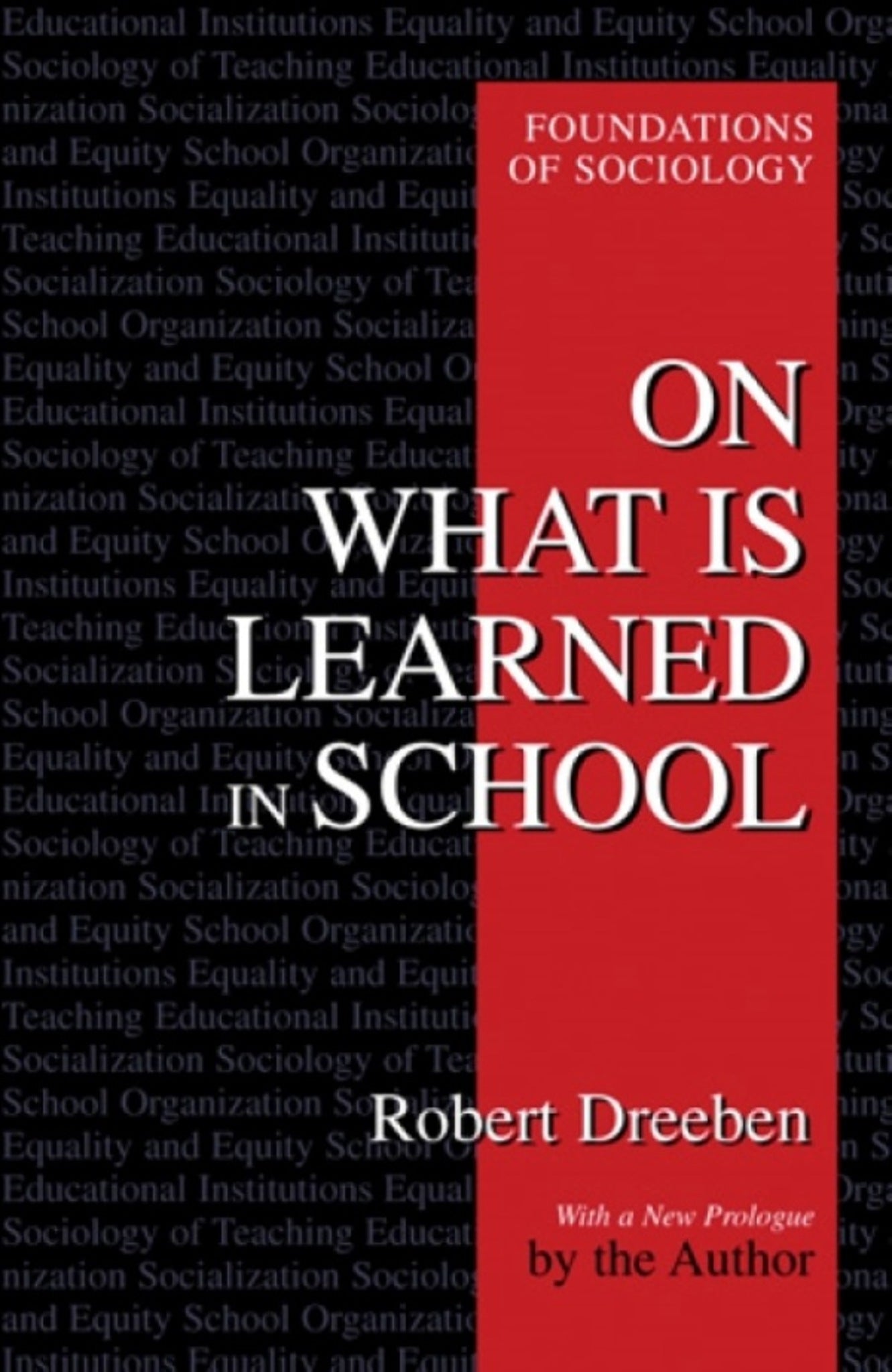We're sorry. An error has occurred
Please cancel or retry.
On What Is Learned in School

Some error occured while loading the Quick View. Please close the Quick View and try reloading the page.
Couldn't load pickup availability
- Format:
-
31 December 2002

This volume focuses on the nature of schooling and its links with the family, occupations, and politics. Robert Dreeben emphasizes the relationship between school structure and learning outcomes, the importance of these outcomes to other social institutions, and the contrasts between school structure and other socializing agencies. A new prologue by the author places the book into the context of subsequent developments in sociology of education. Originally published by Addison-Wesley in 1968.

SOCIAL SCIENCE / Sociology / General, Society and culture: general, Sociology

'Robert Dreeben’s work cuts across many aspects of the sociology of education and is at the background of a whole range of discussions in the field. In this context On What Is Learned in School remains a most important document. The book has been my on own course reading list for decades and remains there now. It has many followers and is a landmark achievement.' (John W. Meyer, Stanford University)
'[O]ne of the very best books written about the sociology of schools. The book benefits from a clear theoretical perspective, which illuminates the dynamics of a personality as it passes from the world of the family of origin to the adult world of work and politics.' (Amitai Etzioni, Sociology of Education)
Dreeben has fleshed out . . . the bare bones of an argument that Parsons first advanced in an article on the school class as a social system . . . and has contributed his own theoretical insights into the relationship of the structure of the school to the socialization process.' (Jan J. Loubser, Sociology of Education)
Prologue to the Percheron Press Edition
Chapter 1. Introduction
Chapter 2. The Social Structure of Family and School Settings
Chapter 3. Patterns of Conduct in Families and Schools
Chapter 4. Normative Outcomes of Schooling
Chapter 5. The Contribution of Schooling to the Learning of Norms: Independence, Achievement, Universalism, and Specificity
Chapter 6. Schooling and Citizenship
Chapter 7. Schooling, Work, and Politics
Author Index
Subject Index



